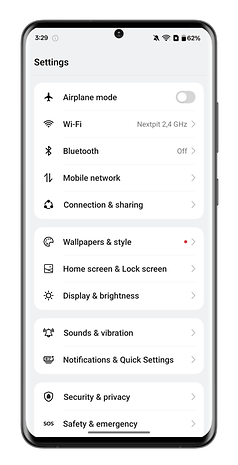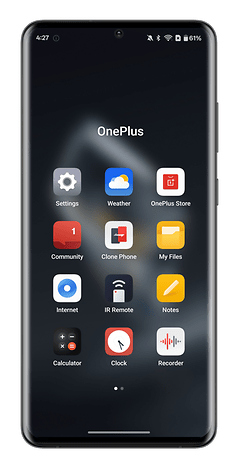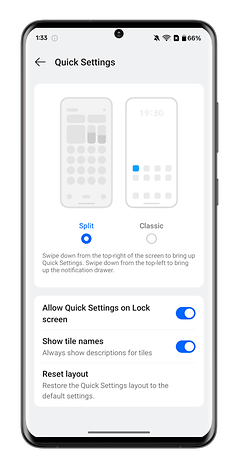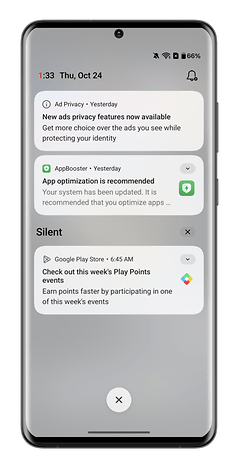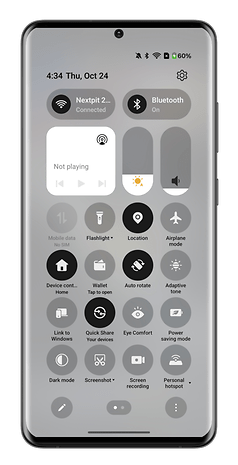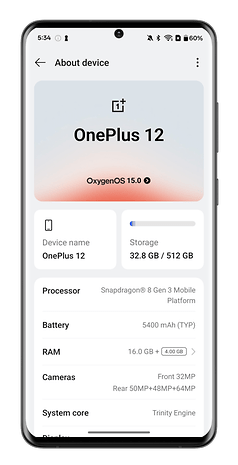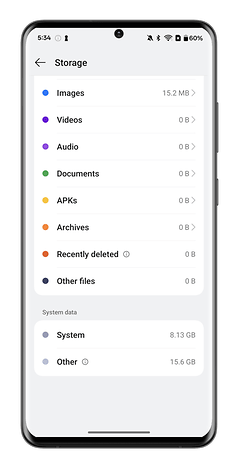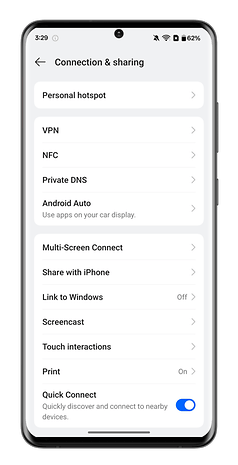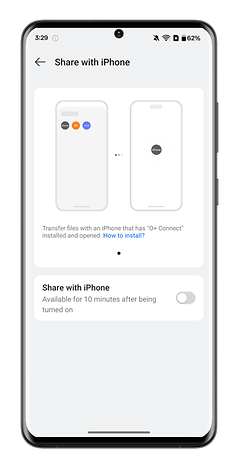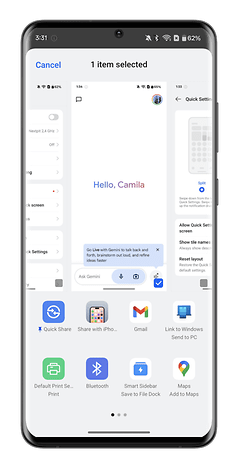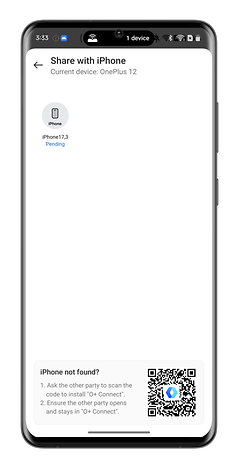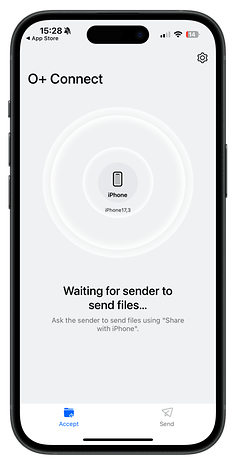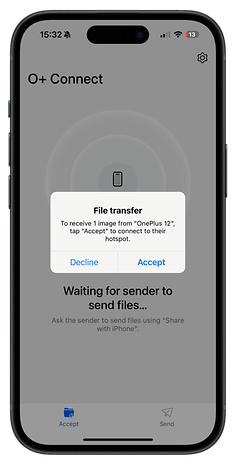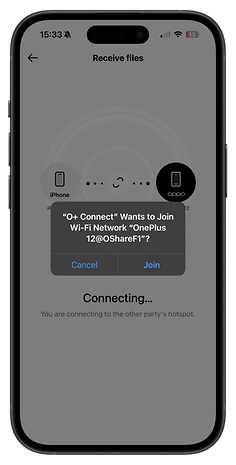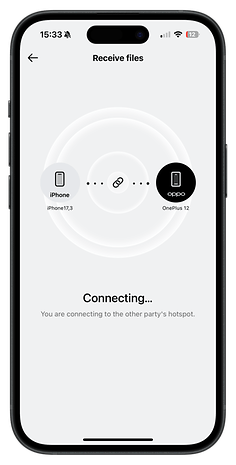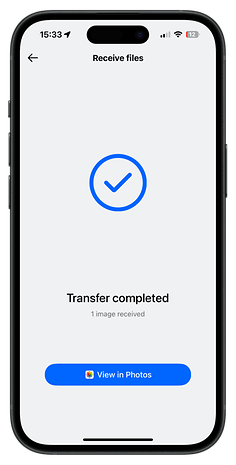OnePlus OxygenOS 15: The Coolest New Features You’ll Actually Use


OnePlus's latest operating system, based on Android 15, has arrived. We had the opportunity to test the OxygenOS 15 beta, and the goal is clear: to meet the demands of today's users while integrating long-requested features and enhancing the overall experience. Here’s a breakdown of what stood out and my thoughts on this significant update.
A Note on Compatibility First
I took part in the OnePlus beta program with the OnePlus 12 (review), but the OnePlus Open (review) is also included in the beta program. However, OxygenOS 15 is set to officially roll out first on OnePlus's flagship devices through an OTA update at launch, making them the initial wave of phones to experience the new features right out of the box.
For those with older OnePlus models, compatibility specifics haven’t been fully detailed yet, but certain features like Google Gemini—OnePlus's advanced AI assistant—will be pre-installed on the latest flagship while still being available for download on other devices.
Today, OnePlus is expanding the OxygenOS 15 Open Beta to more devices. Here’s the detailed rollout timeline:
| From Oct. 30 | From Nov. | From Dec. | From Jan. | From Feb. | |
|---|---|---|---|---|---|
| Devices |
|
|
|
|
|
AI and Cloud Use
I’d like to make it clear from the beginning that some AI functions will rely on cloud services, while others will remain local, catering to privacy-conscious users.
1. Fast and Smooth Experience
OxygenOS 15 stands out for its responsiveness. OnePlus is introducing Parallel Processing technology, which allows animations and app tasks to operate simultaneously rather than sequentially. The goal is to minimize lag, even during intensive multitasking.
When I watched demo videos from a controlled environment, it was clear that OxygenOS 15 handled heavy operations—like switching between multiple apps—more smoothly than the previous version. However, in my daily usage, I didn’t notice a significant impact. But, to be fair, my experience was already good, and OnePlus has consistently delivered solid performance on their devices.
That said, I can see more benefits for mid-range devices running OxygenOS 15.
2. Design Enhancements
As always, OnePlus has taken community feedback seriously, opting for a more modern and friendly aesthetic. And I truly enjoy it a lot. Visual noise is reduced, and the UI feels inviting without being flashy. The revamped icons are rounder and more approachable, reflecting OnePlus’s unique style while maintaining clarity.
However, what I liked the most was the new split option for accessing notifications and quick settings. Yes, some people might say that OnePlus is copying Apple's iOS approach here, but honestly, I'm glad they did. Why not make the system smarter for the user? Now, if you opt to use the split scheme, you swipe down from the top-right of the screen to bring up Quick Settings and swipe down from the top-left to access notifications.
3. System Footprint and Lightness
A significant focus in OxygenOS 15 is system efficiency. By optimizing internal storage and removing redundant processes, OnePlus has made the OS lighter, giving users more free space without compromising features. In the media briefing, OnePlus mentioned that these optimizations provide users with 20% more storage—which I consider quite substantial.
However, when asked if currently available devices eligible for the update would benefit from this new solution, OnePlus didn’t provide a concrete answer. On my OnePlus 12 running OxygenOS 15, the system data now occupies 23.73 GB. How much does your device use? Considering that the Pixel 9 Pro’s operating system takes up 20 GB of space, that's quite an achievement. Nevertheless, this is still a beta version.
This leaner OS should also lead to better battery life and a smoother overall user experience.
4. A New and Long-Awaited Functionality
OxygenOS 15 introduces some long-awaited Android features that I’ve been eager to see, like the ability to share images seamlessly with iPhone users. Yes, you read that right! This kind of cross-platform functionality has been a significant gap, and it’s finally been addressed.
So, how does the "Share with iPhone" feature work? It requires an iOS app. For OnePlus users, file sharing can be activated through a built-in settings option, eliminating the need for additional downloads, while iPhone users need to download the “O+Connect” app to share. I noticed that it’s also available for iPad on the App Store, but so far, it’s not available for macOS.
After the initial setup and permissions, the feature worked quite quickly, and the image quality remained intact. To achieve this, the iPhone connects to the OnePlus network via a hotspot. However, keep in mind that the iPhone user will need to download an additional app for this feature to work.
5. AI Features for Creativity and Productivity
With OxygenOS 15, OnePlus finally steps into the AI era, and some AI enhancements are genuinely useful for photo enthusiasts. AI Unblur and AI Reflection Eraser enhance photo quality, while AI Detail Boost allows you to reframe your photos later by cropping them while mostly preserving their quality.
However, for me, it's the productivity feature that stands out—Intelligent Search. It lets you scan local files to extract key information, making it an excellent tool for people like me who tend to screenshot information frequently. This tool can be quickly activated when you need quick answers, making it feel practical, efficient, and surprisingly intuitive.
According to OnePlus, it only works with local files, meaning it's on-device, which makes total sense from a privacy standpoint. So, the next time you need to rely on information from documents or photos, you can ask the AI and get precise answers for your request. However, since it's still AI, it's a good idea to double-check to ensure accuracy right from the start.
My Personal Take
Although I didn't have much time to test OxygenOS 15, I’m impressed with how well it aligns with the times. The focus on user experience is apparent in every detail, from faster processing to thoughtful AI tools.
The ability to seamlessly share content with iPhone is a significant advancement, and the smart local search capability is something I’ve wanted on Android for years. It’s a clear indication that OnePlus is paying attention to user needs while maintaining its distinct style.
OxygenOS 15 isn’t just an update; it’s a thoughtful evolution that considers what users genuinely want. It’s faster, cleaner, and offers practical tools that enhance everyday use without overwhelming the user. With AI features that genuinely add value and a focus on cross-platform compatibility, OnePlus has created an OS that feels in tune with today’s demands.
What do you think of the OxygenOS 15 update? I'm curious to know your take—even if you're not a OnePlus device owner.
Article updated with details on the OxygenOS 15 Open Beta expanding to more devices.
